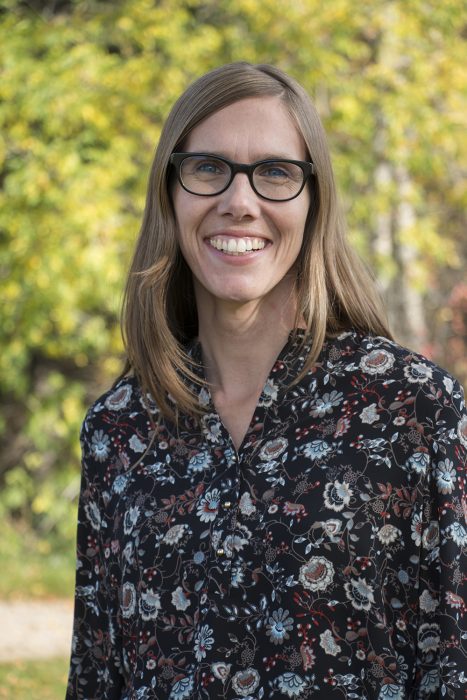
Many of the most common strategies suggested have solid evidence behind them for maintaining health (sleep, diet, exercise) but are framed as strategies for boosting the immune system to prevent COVID-19. (Image source: Pexels)
Study explores online misinformation around immune boosting and COVID-19
Anyone who spends time surfing the net knows it is commonplace to see online advertisements making dubious health claims. Now, with the arrival of COVID-19, misinformation related to the pandemic has proliferated.

Dr. Christen Rachul
Dr. Christen Rachul, director of research at the Office of Educational & Faculty Development and assistant professor in the Rady Faculty of Health Sciences, is part of a research team studying the spread of misinformation on the internet around claims of immune boosting to prevent COVID-19.
Her recently published study, Covid-19 and “Immune Boosting” on the Internet: A Content Analysis of Google Search Results is part of a larger CIHR-funded project looking at how misinformation and disinformation is spread through various forms of media.
Rachul says immune boosting is a form of misinformation that was popular even before COVID-19 and the researchers noticed a big uptake when performing a trend analysis. The team decided to conduct a small case study to get a sense of how misinformation spreads, who is spreading it and how it is being framed.
“Immune boosting is a phrase that has a ‘health halo’ around it,” says Rachul. “It’s a phrase that gets thrown around to make something sound like it is really healthy but there’s no clear definition or scientific evidence to demonstrate what the mechanism is that makes it healthy.”
The researchers conducted a content analysis of 227 webpages compiled from Google searches in Canada and the US using the phrase “immune boosting” and “coronavirus.”
Immune boosting was portrayed as beneficial for avoiding COVID-19 in 85.5 per cent of webpages and 40 per cent of the webpages portrayed supplements as beneficial. The top immune boosting strategies were vitamin C (34.8 per cent), diet (34.8 per cent), sleep (34.4 per cent), exercise (30.8 per cent), and zinc (26.9 per cent).
Rachul says many of the most common strategies suggested actually have solid evidence behind them for maintaining health (sleep, diet, exercise) but they are framed as strategies for boosting the immune system.
“The evidence-based advice is paired with the phrase ‘immune boosting,’ which can legitimize the phrase and make it a powerful marketing tool. Selling products framed as immune boosting then suggests efficacy and benefit,” she says.
One of the effects of misinformation around immune boosting is that it adds to the conflicting messages online during the pandemic. People tend to go online to find information, says Rachul, and with the inconsistent messaging, it’s becoming more difficult to find scientifically-accurate information.
While the study does not address how this misinformation might affect the health-related choices people make, Rachul says, “some products and services have no scientific evidence behind them. They can be harmful, especially in large doses, and they aren’t necessarily regulated.”
In the data set, news websites were the most common type of website. Less than 10 per cent of the websites analyzed had any sort of critical perspective on the idea of immune boosting.
Rachul advises people to obtain their information from official sources, such as Health Canada, and to think critically about the products and services they see in advertisements.
“There’s something suspicious when someone gives health advice that is paired with them asking you to buy their product. Especially when we talk about a novel coronavirus, we’re still learning about it and without a vaccine there’s not really a lot we can do about it,” she says.
Rachul warns that misinformation is not always easy to spot and the sheer quantity of it further complicates the situation.
“The study shows that because the actual advice often has solid evidence behind it, it’s very complex and it’s not always an obvious, bold claim we can easily pick out. We need have a better way to identify and slow the spread of misinformation,” she says.






